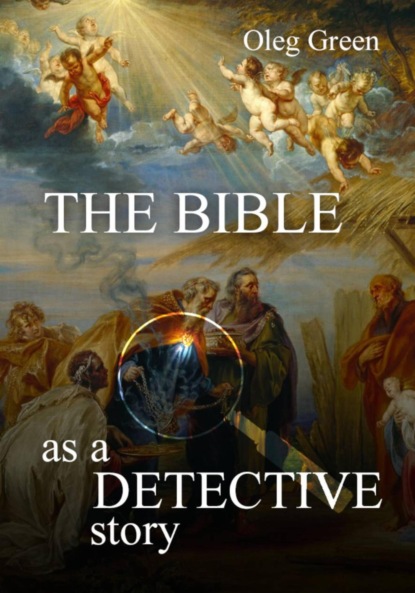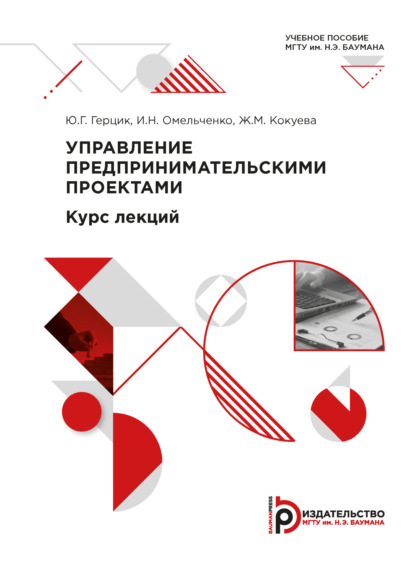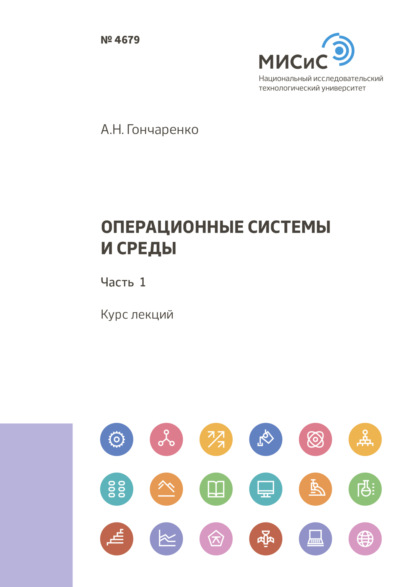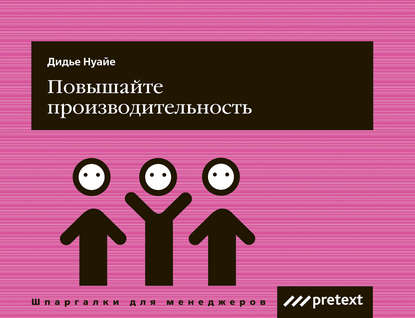- -
- 100%
- +
So where did this, pardon me, absurd story about "secretly sending her away" come from? It's very simple. The author needs to convincingly claim that Mary didn't conceive the child by Joseph (especially since he began by tracing Jesus's genealogy through Joseph). So he writes that Joseph, upon learning of the pregnancy, wanted to send her away—in other words, he knew with absolute certainty that the child could not possibly be his. On the other hand, Joseph is a righteous man, and it's unfair to attribute to him a willingness to disgrace a girl, even in what he considers to be such an extremely unfortunate situation. Hence the completely unrealistic story of his desire to "secretly send away" Mary.
But how could such a thing even occur to me? I'll venture a guess: the author was Roman (which will be evident later in the story of the Magi). The fact is, under Roman law, a woman, even if married, remains the property of her father. And the father has the right to take her back from her husband at any time (yes, that's how it was with the Romans!). And in this case, there really is the option of "secretly sending her away." If the Roman Joseph had come to Mary's Roman father and told him of the shameful situation that had occurred, both parties could have agreed that no one needed publicity. And the father could have taken Mary from Joseph under his paternal Roman law, without explaining anything to anyone. In turn, the pregnancy of a woman already officially married would also have come as no surprise to those around her.
Well, as a minor nitpick, we will point out some inconsistency in the author: “it turned out that She was with child from the Holy Spirit.”
For the reader to understand Joseph's motive, it would have been better to write only "it turned out that she was with child." Because Joseph, as his subsequent description suggests, learned that Mary had conceived "by the Holy Spirit"—not from Mary, but later, in a dream at night, from an angel. Otherwise, it would seem that Joseph learned of this twice. And how, pardon me, could it "turn out" (!) like that? Luke's version of the story is much better—there, Mary learns in advance from an angel that she will conceive by the Holy Spirit. But in Matthew, it somehow ‑"turns out."
For it to "turn out" like this, either Mary must have told Joseph that she had conceived by the Holy Spirit—in which case it would be written that Joseph didn't believe her (that is, he thought she was lying to him, concocting a ridiculous story to justify her shameful act), and only a night vision of an angel convinced him. Or it would turn out that Mary either didn't know why she was pregnant (?!) or didn't tell Joseph that she was conceived by the Holy Spirit, only stating that she was. But in that case, what could she expect? Only divorce and disgrace (and stoning, yes). The lines don't connect well, which is why the author casually wrote, "She was found to be with child by the Holy Spirit."
Next,
"All this happened that it might be fulfilled which was spoken by the Lord through the prophet, saying, 'Behold, the virgin shall conceive and bear a son, and they shall call his name Emmanuel,' which means, 'God with us.'" (Matthew 1:22-23 ‑)
I won't cite the relevant Old Testament passage here (Isaiah 7:14). The reader can look it up for themselves and see that this prophecy refers to very specific circumstances that took place in ancient times and in no way refers to the future Messiah of the New Testament era. And the word "Virgin," capitalized in the Synodal Translation, is another lie by the Russian Orthodox Church translators. As is the expression "behold, the Virgin." The original text says "this girl," and the prophet there refers to a very specific girl. He addresses the king and says, " This girl will conceive," meaning, " This girl will become pregnant." There is another word in Hebrew specifically for "virgin." And, of course, if we say that a ‑girl became pregnant, we are unlikely to mean that she became pregnant not from a man, but because she was a virgin and from the Holy Spirit. If we were talking about such an incredible event, then, ‑firstly, it would have been necessary to somehow emphasize that we are talking about a virgin who became pregnant without a man, because otherwise no one would even think of such a conception (and it didn't; the author of the Gospel decided to choose a "suitable" prophecy—at first glance, to make his story more convincing). And ‑secondly, given the context of Isaiah, Mary would have to be considered the second virgin in history to conceive . After all, it was about a specific girl in a specific situation.
And here I propose we ask ourselves: why does the author cite a prophecy, completely inappropriate for this situation, about the birth of ‑a man named Emmanuel who lived long ago ? If he does, he knows the Scriptures, and therefore cannot help but understand that this ancient story, which happened long ago, has nothing to do with Mary. Is this again absurd, like the genealogy of Jesus through Joseph in the male line? Or… or is this deliberate absurdity, written according to the principle of "sapienti sat"? Roughly speaking, "a fool will believe, but a wise man will think about it"? (What if that same absurd "turned out" was also a deliberate absurdity? Is the author, pardon me, stupid? So stupid that he doesn't notice the absurdity of tracing Jesus's genealogy through Joseph through the male line and then immediately following that story with the assertion that he is not Joseph's son? Or is he, on the contrary, quite clever and, with this absurdity, "trolling," in modern parlance, the reader, hinting at something ‑he knows but can't quite put into words? Or perhaps he's got a knack for arithmetic and knows perfectly well that 3 x 14 = 42?)
If you read the relevant passage in Isaiah, you'll understand—even though it's not explicitly stated—that the girl most likely conceived from the prophet himself. And what is a prophet? A man from God. A righteous man. A holy soul, so to speak. Hmm. How could it possibly "turn out"…
Mary "is with child of the Holy Spirit"? For a modern Christian, the meaning is obvious—it's referring to God ‑the Holy Spirit, one of the persons of the Trinity . However, this is a rather late scholastic concept—Christians debated it for centuries to come. But the author of the text, as well as his contemporary ‑readers, didn't have such a concept. What does "the Holy Spirit" mean to a Roman (and the text is written in Greek, so not for Jews)? And, in fact, to Jews too? Think about it… But perhaps the author simply means some "spirit of God"? But he doesn't write that! Luke writes that. But not Matthew. He doesn't write that conception was from God, much less that Jesus is God born of Mary (Jesus becomes the eternal God only in the Gospel of John, that is, at the end of the first century). Consider this fact. No, for some reason Matthew ‑gives the genealogy of Jesus through the male line , and only Joseph there, according to his own words, is superfluous…
Now let's move on to the next episode in Matthew – the story of the Magi.
Here's a quick clarification for those unfamiliar with the topic: Judea and Galilee are two countries bordering each other and historically sometimes united under a single ruler, sometimes divided. Galilee is located north of Judea. During the time of King Herod the Great, these countries were united, and again divided (by the Roman Emperor) during the reign of his successors. The Jews of that time believed, based on an ancient prophecy, that the Messiah they were expecting, the future King of the Jews, would come from Judea and—if we believe Matthew—specifically from the Jewish city of Bethlehem. This is the hometown of King David. Jesus, however, was a Galilean by birth.
How does the author of Matthew's Gospel resolve this problem? He solves it this way: Jesus is born in Bethlehem, in Judea—as befits the Messiah—but due to unexpected circumstances, Joseph's family is forced to flee first to Egypt, and upon their return, to Galilee, to the city of Nazareth. This is why Jesus, Mary, and Joseph, natives of Bethlehem, turn out to be Galileans, and the adult Jesus, when he begins preaching, is considered by all to be a Galilean. I quote:
“Now when Jesus was born in Bethlehem of Judea in the days of Herod the king, behold, wise men from the east came to Jerusalem, saying,
Where is he who has been born King of the Jews? For we have seen his star in the east and have come to worship him.
When Herod the king heard this, he was troubled, and all Jerusalem with him. And he gathered together all the chief priests and scribes of the people and asked them where the Christ was to be born. They answered him, "In Bethlehem of Judea." For so it is written by the prophet: "And you, Bethlehem, in the land of Judah, are by no means least among the princes of Judah. For from you shall come a ruler who will shepherd my people Israel."
Then Herod secretly called the Magi and learned from them the time of the star's appearance. He sent them to Bethlehem and said, "Go and search carefully for the Child, and when you have found Him, bring me word, that I too may come and worship Him." When they had heard the king's message, they departed. And behold, the star which they had seen in the east went before them until it came and stood over the place where the Child was.
When they saw the star, they rejoiced with exceeding great joy. And when they had entered the house, they saw the Child with Mary His mother. And they fell down and worshiped Him. And when they had opened their treasures, they presented Him with gifts of gold, frankincense, and myrrh. And having been warned in a dream not to return to Herod, they departed for their own country by another route.
And when they had departed, behold, an angel of the Lord appeared to Joseph in a dream, saying, Arise, take the young Child and His mother, and flee into Egypt, and remain there until I tell you, for Herod will seek the young Child to destroy Him. So he arose, took the young Child and His mother by night, and departed for Egypt, and remained there until the death of Herod, that it might be fulfilled which the Lord spoke by the prophet, saying, Out of Egypt have I called My Son.
Then Herod, seeing himself mocked by the Magi, was greatly enraged, and sent to kill all the infants in Bethlehem and all its districts, from two years old and under, according to the time he had ascertained from the Magi. Then was fulfilled what was spoken by the prophet Jeremiah, saying, "A voice is heard in Ramah, weeping and wailing and great lamentation. Rachel weeps for her children and refuses to be comforted, because they are no more."
Now after Herod's death, behold, an angel of the Lord appeared to Joseph in Egypt in a dream, saying, "Arise, take the young child and his mother, and go into the land of Israel; for those who sought the young child's life are dead." So he arose, took the young child and his mother, and came into the land of Israel. But when he heard that Archelaus reigned in Judea in the place of his father Herod, he was afraid to go there. But being warned in a dream, he departed into the region of Galilee. And when he came, he dwelt in a city called Nazareth, that it might be fulfilled which was spoken by the prophets, 'He shall be called a Nazarene.'" (Matthew 2:1-23 ‑)
What's wrong here? Let's start with the fact that the word "Nazarene" in contemporary Judaism (most likely) has no connection to the city of Nazareth, something the author is simply unaware of. It refers to those Jews who were especially dedicated to God and strove to lead a particularly righteous life. This is what they called themselves—Nazarenes. The author, unaware of this, assumed that the nickname "Nazarene" denoted, as often happens, the city of origin (for example, Joseph of Arimathea was Joseph from the city of Arimathea, Mary Magdalene was from Magdala, and so on). However, I could be wrong here—historians insist that the city of Nazareth existed, and therefore, Jesus could have been called a Nazarene for this very reason.
Now let's talk about the Magi (the Slavic word for "wizard"; in the author's original source, it's "magi"). The first thing that catches the eye is the attitude of devout Jews toward magic, wizards, and everything associated with it—let's say, negative; from their religious perspective, it's considered impure. Therefore, using "magi" in a positive sense in the story, especially as gift-givers and "witnesses" to the Messiah's birth, is nonsense for a Jew. The author could just as easily have written that in honor of Jesus's birth, the Jew Joseph held a feast where he treated guests to pork. The author is clearly not Jewish; he is Greek or (as noted above, most likely) Roman, and therefore, for him, the magicians from the East are, indeed, authority figures.
In Rome, for example, there were priests ‑who predicted the future, for example , by examining the entrails of sacrificial animals. Astrology was also very popular in ancient Rome. Therefore, for someone from classical antiquity, introducing magicians and ‑astrologers into the story as "recommenders" for Jesus as the messiah is a very convincing move. But when transposing this story to a Jewish setting, the effect is as if a modern American director were making a film about ancient Rome, in which Roman legionnaires eat hamburgers and fries for lunch ‑and drink Coca-Cola.
Similarly, for a Roman or a Greek, the East was indeed associated with ancient wisdom—recall Plato's tale of Solon, who studied under the Egyptian priests. But for a Jew, what was the East? Pagan Babylon? The place of captivity and slavery for the Jews after the Babylonians destroyed the First Temple? To put it mildly, not the most fitting associations…
(Looking ahead, Luke's similar story of the "prophecy at the birth of the messiah" is much better—the place of the non-kosher magicians is taken by the Jewish righteous man Simeon and the Jewish prophetess Anna. Luke likes Matthew's idea of a prophecy at the birth of Jesus and uses it, but he doesn't like its specific implementation by the Roman Matthew.)
Next. So, the Magi see a certain star "in the east," the appearance of which, in their opinion, signifies the birth of a Jewish king (by the way, why would they care about some ‑Jewish king?). The first question that inevitably arises is how the Magi understood the star's appearance. Of course, astrologers still love to make predictions based on horoscopes. But the fact is that an astrologer works with certain "rules" by which they calculate future events. And these rules take into account already existing objects, stars, and planets. It's similar to a card reader using a familiar, familiar deck. If such a reader lays out the cards, and some thief secretly slips a non-existent, invented card into the deck, how will the reader be able to understand its meaning? The same goes for a star—how can one interpret a suddenly appearing, previously non-existent object in the sky? "We saw His star in the east" – how did they know it was "His" star, the star of the King of Judea? But oh well, let's chalk it up to the incomprehensible wisdom of Eastern astrologers and magicians ‑…
A better question is: what could this star be? Considering that it simply "appeared," meaning it didn't exist previously? And then, at least long enough for the Magi's journey, continued to be visible? I see three possible options: a supernova explosion, a comet, or some miraculous star—that is, a "beacon" created by God (apparently especially for the Magi) that looked like a star and could act as a "guiding star," meaning it would hover low and act as a kind of navigator, like a smartphone. The Magi's initial behavior corresponds to one of the first two options: they saw the star, immediately realized it signified the birth of the King of Judea (what else could it be), and, in search of him, they headed to Jerusalem, the capital of Judea—quite logical. There they began asking everyone where the newborn king was. And only thanks to the interpretation of the "chief priests and scribes" did they learn that they should head to Bethlehem. (By the way, note the Roman author's complete ignorance of Jewish realities: he uses "chief priests" in the plural, which is impossible; the Jews always had only one high priest.)
And then, suddenly, the star's character changes: now, and only now—after Herod learned that the King of the Jews had been born and where he was born—it transforms from an object by which only the birth of the Messiah could be determined, into a "beacon." That is, into something hanging low enough to be used for orientation, and with which one can even find a specific house. Now it guides the Magi, like a satellite navigator on a smartphone… In short, it behaves as the author desires—first, so that the Magi cannot find Jesus on their own and are forced to ask the people of Jerusalem—that is, so that Herod learns about the baby, and Joseph is forced to flee to Egypt—and then so that the Magi find a specific house.
So, the Magi find the house where Joseph and Mary live and bring gifts to the Child. Afterward, both Joseph and the Magi receive revelations in a dream, causing Joseph and his family to flee to Egypt during the night, while the Magi do not return to Herod. The question inevitably arises: couldn't the Magi have been given a revelation to avoid going to Jerusalem to see Herod, and instead go directly to Bethlehem, having previously set the star to "beacon" mode? Then the innocent babies would have been spared from harm? The answer is obvious: of course not! Otherwise, how could Joseph and his family have ended up as residents of Nazareth in Galilee?
And the second question: why are the Magi bringing gifts at all? And here, too, it's clear: this is simultaneously "evidence" (in quotation marks, of course, since we're talking only about the author's rich imagination) that Jesus was born in Bethlehem, and "evidence" that He is the future King of the Jews (for after all, the mysterious magicians from the East said so, and the star is also "evidence" to that), and finally, if not for the Magi, Herod would have known nothing, and Jesus would have remained a Bethlehemite. And He is supposed to be a Galilean, yes.
And the babies of Bethlehem – who would count them… Only Joseph receives the revelation to flee Bethlehem, and not the fathers of the other babies.
Next, "Herod the king was troubled, and all Jerusalem with him." Let's imagine this situation and consider what should have followed from it. Well, ‑first of all, all of Jerusalem learned that the long-awaited Messiah had been born! And what's more, the magicians who had announced it were planning to find him and bring him gifts! And do you know how far it is from Jerusalem to Bethlehem? As the crow flies, from the Temple Mount to the center of today's Bethlehem, it's just over 8 (in words, eight!) kilometers. Two hours' walk!
Question: What percentage of Jerusalem residents, upon hearing such astonishing news, went with the Magi to see the birth of the long-awaited Messiah? The correct answer: none. Of course, none, otherwise the entire plot would collapse…
And what does Herod do? One would expect him to send servants with the Magi, also bearing gifts, of course, and then find out from them where the baby is. After which, of course, some ‑unfortunate incident would happen to the baby. Robbers, for example, would break into Joseph's house, or something else . ‑This Herod was a remarkably slow-witted king… Incidentally, even if that were true, wouldn't it have been so difficult to send servants to Bethlehem at least later? After all, it's unlikely that the residents of the small town of Bethlehem would have missed such an event as the arrival of three richly dressed (judging by the gifts, which included gold) Eastern men at Joseph's house? Such an event would undoubtedly have been the subject of much gossip, especially since the Magi, as we see, made no secret of who they were looking for or why.
But the author's Herod… orders the murder of all the infants in Bethlehem and the surrounding area, two years old and younger! Excuse me, how can that be? He orders the murder of the future Messiah, and with him, many other Jewish children? In Judea ‑? Near Jerusalem, which was "all troubled," meaning it learned of the Messiah's birth?
For comparison's sake, just over a decade later, the Romans will conduct a census in Judea (the very one mentioned by Luke). It will spark a popular uprising, because Jews, according to their religious beliefs, cannot be counted. Just a census—and then King Herod (who, by the way, was not Jewish and, let's say, was somewhat disliked by the Jews) decides to kill the Jewish Messiah (and, along with him, the Jewish children in Bethlehem, near Jerusalem)?! Not the best suicide option for Herod… It is no coincidence that the real history of Herod's reign, which is well known to modern historians in detail, does not know of any massacre of the innocents (and it is no coincidence that later the author of the Gospel of Luke – who, in fact ‑, was a Jew by origin – will not repeat this story, but will retain Matthew's idea of "born in Bethlehem, raised in Galilee", inventing another reason for this, namely, the census).
However, let's consider how deliberately the author concocts such obvious absurdity. What if Matthew is once again playing with meanings, a rebus? And the obvious absurdity is just another hint? Consider: if we discard the completely unrealistic specifics, it turns out that some outsiders are somehow ‑involved in Jesus's birth— that is, they know about the event in advance. And unusual ones at that ("magicians"). They have been caring for him and his family since birth. And they have known his destiny since birth. And they are guided by a "star," that is, it is precisely a "star" that directs them, in other words, controls them.
Let's leave this as a hint for now; more to come. And one last thing. At the end of the first chapter, Matthew says:
“When Joseph rose from sleep, he did as the angel of the Lord commanded him, and took his wife into his arms, but did not know her. [How] finally she gave birth to her firstborn son , and he called his name Jesus.” (Mark 1:25-26 ‑)
But that's the Synodal Translation. What about the author's original? Like this:
“…and he knew her not until she gave birth to a son and called his name Jesus.”
Feel the difference, as they say. I hope the Synodal translators were paid well for their compromise with their conscience…
The Gospel of Luke
“In the sixth month (amazing! Perhaps you could name the year better? – author) the angel Gabriel was sent from God to a city of Galilee named Nazareth, to a virgin espoused to a man whose name was Joseph, of the house of David. And the virgin’s name was Mary. The angel came in to her and said, ‘Hail, highly favored! The Lord is with you; blessed are you among women.’ But when she saw him, she was troubled at his words and wondered what kind of greeting this could be. Then the angel said to her, ‘Fear not, Mary, for you have found favor with God. And behold, you will conceive in your womb and bear a son, and you shall call his name Jesus. He will be great and will be called the Son of the Most High, and the Lord God will give him the throne of David. (oops, here the angel made a slight mistake with the prophecy – author) , his father (what? – author) ; and he shall reign over the house of Jacob forever (and here too the angel was wrong – author) , and of his kingdom there shall be no end. Then said Mary to the angel, How shall this be, seeing I know not a man? The angel answered and said unto her, The Holy Spirit shall come upon thee, and the power of the Highest shall overshadow thee: therefore also the Holy One to be born shall be called the Son of God. Behold, thy relative Elizabeth also hath conceived a son in her old age, and this is the sixth month with her, who was called barren: for with God nothing shall be impossible. Then said Mary, Behold the handmaid of the Lord: be it unto me according to thy word. And the angel departed from her. (Luke 1: ‑26-38)
Let's start with the fact that the Synodal translators' attempts to "improve" the Gospels, albeit not as overtly as in ancient times, have not disappeared… The phrase "Rejoice, O full of grace," spoken by the angel upon entering Mary, is translated literally, not according to its meaning. The angel was greeting Mary because "rejoice" was also a common greeting in the Greek language of the time, similar to the wish of health "hello" in Russian, or "good day" (guten tag) in German, or "peace be with you" (shalom) in Hebrew. In the context of conversation, "rejoice" would indeed mean a wish for joy ‑, but as the first word upon entering a house, it is, of course, a greeting. And the correct translation into Russian would sound either “hello, Gracious One” or, better (after all, “hello” sounds somehow too Russian) “greetings , Gracious One.”




